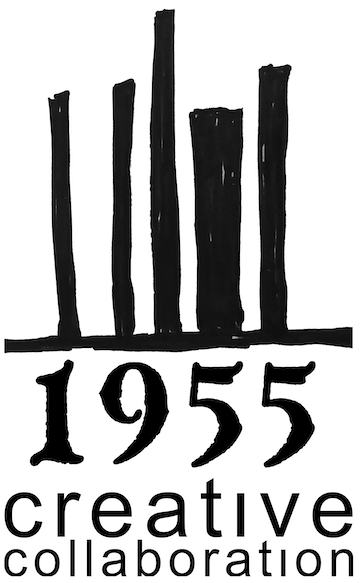
our latest film screened in 2024

Screened at the International African Urbanisms Conference : Transforming African city-making through an ethics of co-production, Wits University, Johannesburg
film location_Freedom Charter Square, Kliptown, Soweto
25 October 2024
running length 17 minutes
photographer and co-producer_Thabang Nkwanyana, 1955 Creative Collaboration
editor and co-producer_kristen kornienko, Wits University and 1955 Creative Collaboration Kliptown is the site where
The Congress of the People gathered in 1955 to sign South Africa’s Freedom Charter. An act creating the foundation for the South African Constitution, which holds the beauty of socio-economic rights based on dignity. In the film “Living African Urbanisms in Freedom Charter Square, Kliptown”, photographer, community leader and Kliptown resident Thabang Nkwanyana captures the lived reality of the neighbourhood his family has called home for three generations. He describes Klitpown as a mixed racial community with diverse cultural spaces and neglected heritage, and growing up there as a mixed experience in a place with rich history and culture yet underprivileged and surrounded by poverty, crime, drugs and unemployment.The film seeks to hold a space in urban justice through its raw reflections - both beautiful and harsh - on a community’s own efforts to develop. The filmmakers have collaborated for over a decade and leverage that longevity to challenge the legacy and contemporary moment of such (western) normative language and practices as “informal settlement” and “basic services provision” in the face of socio-spacial injustice, climate change and dire infrastructure gaps.
On 29 January 2024 Kliptown experienced a catastrophic flood event. To the time of this writing (April 19), road destruction remains at a level that the chemical toilets in much of the community cannot be emptied. Using “20 Days in Mariupol” as a precedent, it is a collection of short video clips from Thabang’s iPhone capturing resident-led development efforts since that day.
© 1955 Creative Commons

Ways of Moving: everyday experiences traversing a fragmented cityscape
Screened at 1st International and Interdisciplinary Conference on Spatial Methods for Urban Sustainability, Global Center of Spatial Methods for Urban Sustainability
24 September 2021
film location_Kliptown, Soweto, South Africa
running time 15 minutes
director/photographer_Thabang Nkwanyana (Visual Creative, 1955 Creative Collaboration, South Africa)
producer/editor_Kristen Kornienko (RAIC Centre for Architecture, Athabasca University/CUBES, Wits University; 1955 Creative Collaboration, South Africa)
In “Private Moments, Private Wastelands”, V.S. Naipaul describes contemporary African navigation of cultural worlds, ‘South Africa with its many groups, its many passions, its biding tensions...[with] political realities so overwhelming that they have to be taken into account’. Johan- nesburg, he articulates as layers of differing values and ideologies, seemingly disparate individuals. Disparaging Soweto, the southern Black township, he leaves unresolved as to what holds her together, offering only flagging hopes hung on the images of Mandela. Enter, Soweto as protagonist. Mandela increasingly inaudible. Amapiano throbbing in the air. The deteriorated/cannibalized Metrorail as both metaphor and reality, aperture negotiating city and township/CBD mass transit link. Drone imagery unmasquing (dis)connection, exploring subversion in the reciprocal human experiences of urban (un)boundaries of sound, fear, distance, disregard, clash, insurgency. How does boundary, visible and invisible, inform ideologies and values, and thus the socio-spatial constructs of our own and shared realities of the city?
Like neighbourhoods across the world, Kliptown has grown up and densified around mass transit infrastructure. But this is part of a much longer story of the relationship between Johannesburg and Soweto that dates back to the discovery of gold in the Jukskei Riverbed, when the unspoiled veld became the Witwatersrand Gold Reef. This film explores contemporary socio-spatial injustice, a legacy rooted in that discovery. A short stretch of the closed Kliptown line of the Gauteng Metrorail becomes stage to agency of subversion and nakedness of place.
© 1955
Solidarity? Revealing the Everyday Lived Reality of Covid-19 in Kliptown, Soweto
location_Kliptown, Soweto South Africa
1 September 2020
running time 49 minutes
This film has been shot and driven by the people living the story. It reflects on the everyday lived realities for the residents of Kliptown's shack communities as they face the threat of the Covid-19 disease. It shows the urgency of today's pandemic set within a neighbourhood that has been neglected by the government for decades. It tells the individual stories of the people living there and of an extraordinary group of residents who are heroically fighting to slow the transmission of the virus in their community.
Thabang Nkwanyana director
Kristen Kornienko producer
Thabang Nkwanyana photographer
Ginger Mahlamvu photographer
Bafana Nkosi photographer
Sbusiso Somniso aka Demigod postproduction editor
Kristen Kornienko co-editor
Robert Shai community liaison and location scout
©1955
